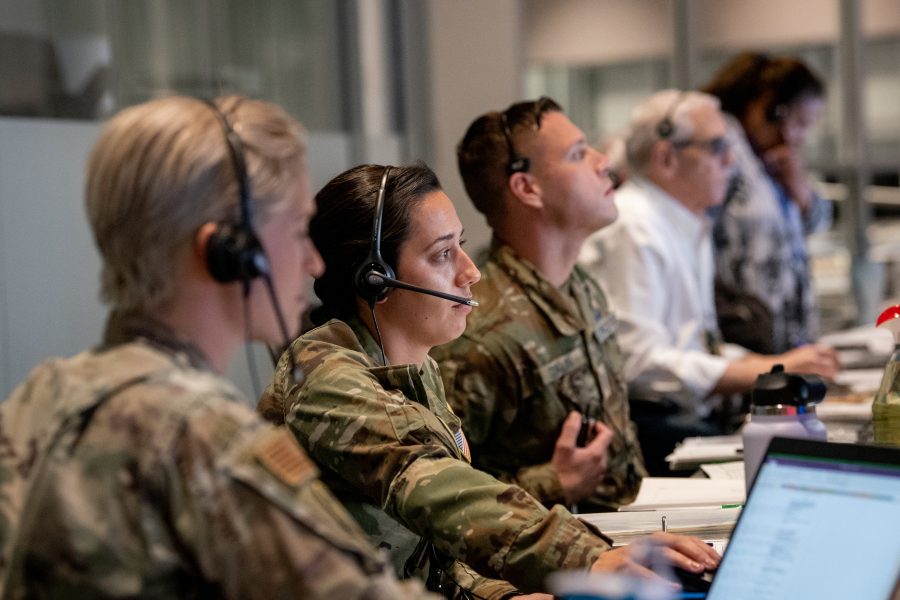The Space Force is exploring the idea of using civilians or even contractors to help conduct operations, as the service sorts out how to best manage its small workforce, Chief of Space Operations Gen. B. Chance Saltzman said this week.
“When you’re a small force as we are, we have to be very careful and very specific with how we use manage, attract, assess and retain our workforce,” Saltzman said at the Mitchell Institute’s Spacepower Security Forum on March 27. “So we are going to great lengths to make sure that we are actively looking at each of those elements to make sure we optimize it. Where do we need people to stay longer? And if it doesn’t say for a military member to stay longer, how do you augment that with either civilian workforce or commercial augmentation? And we are looking at what the right mix is for that across the force.”
The Space Force’s authorized end strength for 2024 is 9,400 uniformed Guardians, with another 4,600 or so civilians. The service plans to expand its total workforce in 2025 by four percent to 15,084 total, with 9,800 uniformed Guardians. The next smallest service, the Marine Corps, is 18 times bigger with 172,300 uniformed personnel—as well as some 20,000 civilians.
As a small branch that’s still just four years old, USSF has relied on the Air Force or broader Pentagon guidance for manpower plans, Saltzman noted.
“We get to manpower, and we don’t necessarily have Space Force-drive models for how to use our manpower,” Saltzman said. “So now we’re starting to think about it more individually as a service, build our own models, our own tools to be able to do that planning more effectively. But it will consider active force civilians, as well as contractor commercial augmentation.”
Tapping into the private sector or leveraging civilians is not novel for the military and other government space agencies. But this initiative may break new ground in how deeply integrated contractors could be involved in day-to-day operations and potentially managing critical missions.
Space Operations Command released a request for information (RFI) in late 2023, asking industry for input on the idea of asking contractors to “perform as operational crew members in support of 24/7 operations for SpOC missions, specifically, Space Domain Awareness, Missile Warning/Defense, MILSATCOM, Intelligence, and Orbital Warfare” on top of training and support tasks.
The RFI highlights how civilian operators will not only monitor, troubleshoot the satellite, and manage sensitive data, but also be in charge of executing government missions as well as operating foreign assets. For instance, a missile warning operator is expected to “conduct mission/program specific real-time spacecraft flight operations during readiness, execution, and evaluation phases.”
Such a move could help the service handle its expanding portfolio while operating in a fiscally-constrained environment. It could also have an effect on uniformed Guardians’ training and development, an area Saltzman has made a key part of his tenure as CSO. At the AFA Warfare Symposium in February, he announced the Space Force would establish a common Officer Training Course to ensure all space operators possess comprehensive understanding across satellite, cyber, and intelligence.
However, integrating contractors onto military teams could create concerns about the implications of outsourcing operations and chain of command. Already, industry leaders have emphasized the need of clear guidelines regarding accountability in government-private company cooperation, adding that even with written documents, complications could arise in dire situations.
The imminent release of the Space Force’s long-awaited commercial strategy is expected to offer a framework for a greater level of collaboration between the service and industry.

